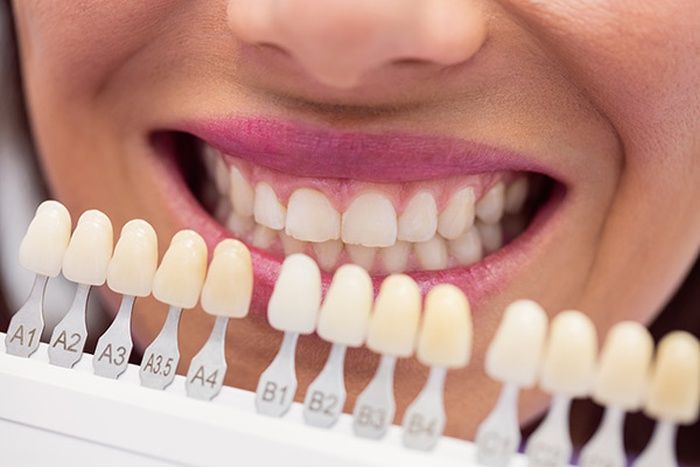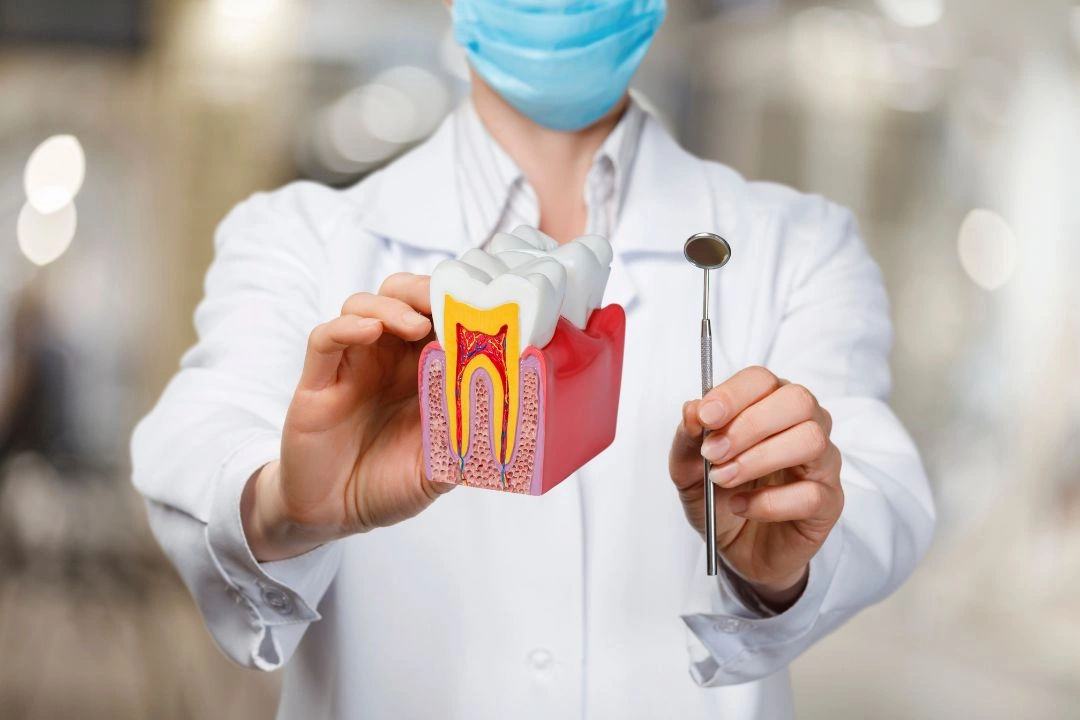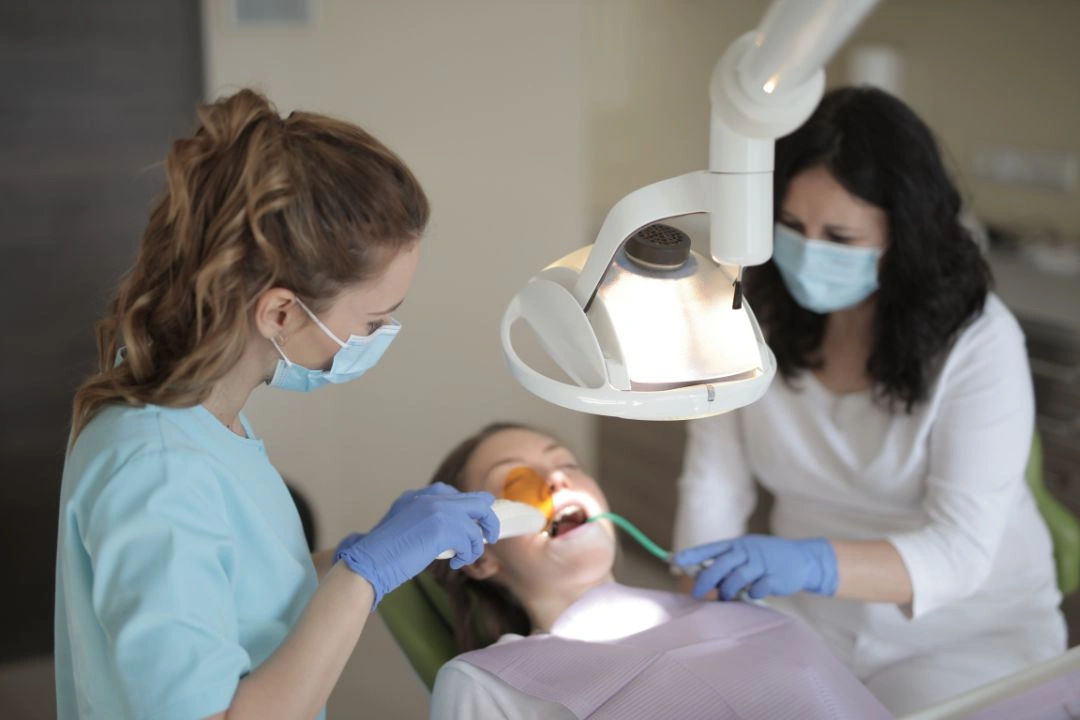Zirconia Tooth Crown vs. Ceramic Tooth Crown: Understanding the Key Differences | AMD Dental Clinic

Introduction
When it comes to dental restorations, tooth crowns play a significant role in improving both the aesthetics and functionality of damaged teeth. With advancements in dental technology, patients now have a range of options to choose from, including zirconia and ceramic tooth crowns. In this blog, we will delve into the differences between these two popular choices to help you make an informed decision about your dental restoration needs.
- 1. What are Zirconia and Ceramic Tooth Crowns?
- 2. Aesthetics
- 3. Durability and Strength
- 4. Biocompatibility and Allergies
- 5. Cost Considerations
1. What are Zirconia and Ceramic Tooth Crowns?
A. Zirconia Tooth Crowns:
Zirconia tooth crowns are made from a durable, white-colored material called zirconium dioxide. It is a ceramic material that undergoes a special manufacturing process to enhance its strength and aesthetics. Zirconia crowns are known for their exceptional durability, biocompatibility, and resistance to fractures, making them suitable for posterior (back) teeth restorations. At AMD Dental Clinic, our prosthodontist, Dr. Mili Gupta, is a crown specialist who can expertly place zirconia crowns for our patients.
B. Ceramic Tooth Crowns:
Ceramic tooth crowns, on the other hand, are usually made from porcelain or other ceramic materials. These crowns are renowned for their natural tooth-like appearance, translucency, and ability to blend seamlessly with the surrounding teeth. Ceramic crowns are commonly used for anterior (front) teeth restorations due to their superior aesthetic qualities. At AMD Dental Clinic, Dr. Mili Gupta is experienced in placing ceramic crowns for patients who desire a natural-looking restoration.
2. Aesthetics
One of the primary concerns for many patients is the appearance of their dental restorations. Here's how zirconia and ceramic crowns differ in terms of aesthetics:
A. Zirconia Tooth Crowns:
Zirconia cap cost at AMD is so affordable and it provides a good balance between strength and aesthetics. They offer a natural-looking appearance, but due to the nature of the material, they may not possess the same translucency as ceramic crowns. Zirconia crowns are available in different shades to match the color of your natural teeth and can be customized to achieve the desired aesthetic result.
B. Ceramic Tooth Crowns:
Ceramic crowns offer exceptional aesthetic qualities, making them the preferred choice for anterior teeth restorations. They possess translucency similar to that of natural teeth and can be matched to the color and shade of your surrounding teeth, creating a seamless and natural-looking restoration.
3. Durability and Strength
Another crucial factor to consider when choosing a tooth crown is its durability and strength. Here's how zirconia and ceramic crowns compare:
A. Zirconia Tooth Crowns:
Zirconia crowns are known for their exceptional strength and durability, making them a popular choice for posterior teeth restorations. They are resistant to fractures and can withstand the forces of chewing and biting. At AMD Dental Clinic, our prosthodontist, Dr. Mili Gupta, may recommend zirconia crowns for patients who grind their teeth or have a history of dental fractures.
B. Ceramic Tooth Crowns:
Ceramic crowns, while not as strong as zirconia crowns, are still durable and can withstand the normal forces of chewing and biting. However, they may be more susceptible to chipping or fractures compared to zirconia crowns. At AMD Dental Clinic, Dr. Mili Gupta may recommend ceramic crowns for patients who desire a natural-looking restoration for their anterior teeth.
4. Biocompatibility and Allergies
Biocompatibility refers to the compatibility of a dental material with the human body. It is essential to consider this factor to ensure the restoration's long-term success and patient comfort. Let's examine how zirconia and ceramic crowns differ in terms of biocompatibility:
A. Zirconia Tooth Crowns:
Zirconia crowns are known for their high biocompatibility. They are non-toxic, hypoallergenic, and compatible with oral tissues. This makes them an excellent choice for individuals with metal allergies or sensitivities. At AMD Dental Clinic, our crown specialist, Dr. Mili Gupta, will conduct a thorough evaluation of your medical history and perform necessary tests to determine if zirconia crowns are suitable for you.
B. Ceramic Tooth Crowns:
Ceramic crowns, particularly those made from porcelain, are also considered biocompatible. They do not contain metals and are generally well-tolerated by most patients. However, in rare cases, some individuals may be allergic to the materials used in ceramic crowns.
5. Cost Considerations
Cost is an important aspect to consider when choosing between zirconia and ceramic crowns. While the exact cost may vary depending on factors like geographic location and the complexity of the case, generally, zirconia crowns tend to be more expensive than ceramic crowns. The higher cost of zirconia crowns can be attributed to the material's strength, durability, and complex manufacturing process. Ceramic crowns, though still a high-quality option, are often more affordable, making them a popular choice for patients seeking an aesthetically pleasing restoration on a tighter budget.
Conclusion
In summary, both zirconia and ceramic tooth cap offer unique advantages depending on the specific needs and preferences of the patient. Zirconia crowns excel in terms of durability, strength, and compatibility for posterior teeth restorations. Ceramic crowns, on the other hand, provide exceptional aesthetics and natural-looking results, making them ideal for anterior teeth restorations. To determine the most suitable option for you, it is crucial to consult with a qualified prosthodontist like Dr. Mili Gupta at AMD Dental Clinic, who can assess your dental condition, discuss your goals, and recommend the best crown material for your specific case. Remember, the ultimate goal is to achieve a beautiful, functional and long-lasting dental restoration. At AMD Dental Clinic, Dr. Mili Gupta, a renowned prosthodontist and crown specialist, possesses the expertise and experience necessary to guide you through the decision-making process and provide personalized treatment tailored to your unique needs.
Whether you opt for zirconia or ceramic tooth crowns, it is essential to prioritize regular dental check-ups and maintain good oral hygiene practices. Proper care, including brushing twice a day, flossing, and scheduling routine dental visits, will help extend the lifespan of your dental restoration and ensure optimal oral health.
Remember, making an informed decision is crucial when it comes to your dental health. AMD Dental Clinic and Dr. Mili Gupta are dedicated to providing high-quality dental care and ensuring patient satisfaction. Don't hesitate to schedule a consultation to discuss your dental restoration options and embark on your journey toward a healthier, more confident smile.
- A-3, Natraj Nagar near Imli Phatak, Jaipur-302015
- +91 9945826926
- contact@amddentalclinic.com

The Role of RCT Specialists in Saving Infected Teeth: What Makes Them Different?
Discover how RCT specialists at AMD Dental Clinic in Jaipur expertly save infected teeth with advanced root canal treatments and pain-free care.

Emergency Dental Services in Jaipur: Which Clinic Should You Call First?
Emergency dental help in Jaipur is just a call away. AMD Dental Clinic ensures fast, effective treatment with expert hands.

Protect Your Teeth from Sensitivity – Expert Tips Inside!
Say goodbye to tooth sensitivity with expert tips! Learn how to protect your teeth, reduce discomfort, and enjoy a pain-free smile with effective remedies. Read now!

